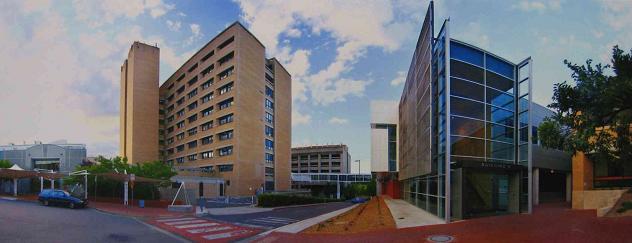NRI US trained doctor, Dr Vini Gautam Khurana
launched world's first awake brain
keyhole surgery to remove a life-threatening aneurysm or a large
blister from a patient's brain. His Awake Craniotomy Program was
successfully launched on April 26, 2007 in the Canberra Hospital.
It is the first formal awake craniotomy program in Australasia
for patients with advanced brain tumours and cerebral blood vessel
abnormalities.
According to the media report, the keyhole surgery, performed
through a 1.5cm hole drilled into the patient's skull with the
patient comfortably awake during the critical parts of the surgery.
It was so successful that the patient was able to leave the hospital
within a few days with a marked improvement in his vision.
The neurosurgeon and patient are each an essential part of the
"neurosurgical team". However, to achieve optimal outcomes
in complex brain microsurgery requires the exceptional input of
all components of this team, including intensive care, anaesthesiology,
radiology, neurology, pathology, aged care & rehabilitation,
oncology, neuroscience nursing and the operating room staff, with
additional support provided by patients' community physicians
and Executive administrative staff.

The Canberra Hospital (TCH) campus: medical, surgical
and laboratory buildings (top left); medical school (top right)
Because teamwork really counts in complex neurosurgery, dedicated
multidisciplinary care is a key feature of the service provided
to neurosurgery patients at The Canberra Hospital. Presented here
are case-images of some of the neurosurgery patients operated
by Dr Khurana and state-of-the-art technologies used by Dr Khurana
and his colleagues at The Canberra Hospital.
Images are shown from Dr Khurana's patients with the following
conditions: ruptured and unruptured brain aneurysms requiring
surgical clipping, arteriovenous malformations (AVM) and arteriovenous
fistulae (AVF) requiring surgical disconnection, severe cranial
infection or trauma requiring craniotomy and cranial reconstruction,
brain tumours located in highly functionally important (eloquent)
or deep parts of the brain requiring meticulous surgical removal,
and some craniotomies carried out in fully awake patients.
Dr Khurana and his neurosurgical colleagues provide benchmark
neurosurgical care to any patient admitted to TCH Neurosurgery
regardless of his or her insurance status. Patients at TCH have
the choice of being admitted as "Private" or "Public"
patients. Private patients from anywhere in Australia should feel
free to ask about our "no-gap" option (no out-of-pocket
expenses when certain Hospital-approved patients are admitted
under Dr Khurana as a private patient). Whether a patient is privately
insured or covered by the Australian Government through Medicare
or Veterans Affairs is not as important to Dr Khurana as the patient's
well being and satisfaction.
Dr Vini Gautam Khurana is a Mayo Clinic-trained neurosurgeon
with an advanced neurosurgery Fellowship in cerebral vascular
and tumour microsurgery from the Barrow Neurological Institute
in Phoenix, Arizona. He holds active medical registration with
the Medical Boards of the Australian Capital Territory and the
State of New South Wales, Australia. He is the only Australian
medical graduate to have completed an entire neurosurgical training
programme, PhD and Fellowship in the United States of America,
where he trained and worked for 10 years.
His specialty interests in intracranial microsurgery
include: